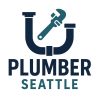Regional Variations in Water Filtration System Prices
Regional differences play a significant role in determining the prices of complete water filtration systems. In urban areas, where demand for high-quality water solutions is often higher, installation costs can reflect that increase. Competition among vendors may lead to fluctuating prices, while local regulations and water quality issues can further influence system choices and associated costs. In contrast, rural regions may experience less competition, potentially resulting in higher prices for both the systems and their installation due to limited service providers.
Geographical factors also affect the availability of resources necessary for water filtration system installation and repair. Certain regions may have unique water quality challenges, necessitating specialized systems that can handle specific contaminants. The cost of these specialized systems can vary significantly based on local water conditions and the expertise required for optimal installation and maintenance. Understanding these regional variations becomes essential for consumers looking to invest in effective filtration solutions tailored to their specific needs.
Urban vs. Rural Pricing Differences
Urban areas often see higher prices for water filtration systems due to greater demand and a larger market of service providers. The availability of various brands and models can lead to competitive pricing, yet installation and repair costs tend to escalate in densely populated cities. Access to certified technicians may also come with a premium, adding to the total expenditure.
In contrast, rural regions generally experience lower overall prices for water filtration systems. Fewer options might limit choices, but local installers may offer more affordable rates due to less competition. However, this can mean longer wait times for water filtration system installation and repair, as fewer technicians are available. The resulting trade-off is often a balance between costs and convenience for rural residents.
Evaluating Long-Term Costs vs. Initial Investment
When considering a water filtration system, it’s essential to analyze both the initial investment and the long-term costs associated with the system’s maintenance and operation. The upfront expenditure typically includes the purchase of the filtration equipment and installation costs. While these figures can vary significantly based on the type of system chosen, understanding the need for periodic maintenance and potential repairs is crucial. Water filtration system installation and repair can add to these initial costs, so it’s important to factor them into your overall budget.
Over time, the total cost of ownership will encompass not only the initial purchase and installation but also ongoing expenses such as filter replacements and routine servicing. This long-term perspective can reveal substantial savings in areas like bottled water expenses. By investing in a water filtration system, homeowners often find that the reduced need to purchase store-bought water can help offset initial costs, making it a financially sound decision in the years to come. Balancing initial price tags with ongoing costs will better inform choices about which system may offer the best value in the long run.
Total Cost of Ownership Over Time
When evaluating the total cost of ownership for a water filtration system, it’s essential to consider not just the initial purchase price but also ongoing expenses. Regular maintenance is a common requirement to ensure the system operates efficiently. Over time, water filtration system installation and repair can add to the overall financial commitment. Users should anticipate periodic maintenance checks, filter replacements, and any necessary repairs that might arise during the system’s lifespan.
Additionally, energy costs and the longevity of the filtration system can impact the overall expense. A high-quality system may have a higher upfront cost but potentially lower long-term maintenance needs. Moreover, some filtration systems offer warranties that can mitigate repair costs, enhancing their overall value. Users must weigh these factors when determining the complete cost of ownership and how it fits into their budget.
Potential Savings from Using Water Filtration
Investing in a water filtration system can lead to significant savings over time. Homeowners who make the switch often find that they drastically reduce their reliance on bottled water. With the average cost of bottled water adding up quickly, a home filtration system allows users to access clean and safe drinking water directly from their tap. The initial investment might seem substantial, but the long-term financial benefits can outweigh these upfront costs.
Additionally, water filtration system installation and repair can be incorporated into the overall savings equation. While routine maintenance is necessary, the expense is generally lower than consistently purchasing bottled water. Homeowners may start to see a reduction in their monthly spending, making the filtration system not just a health-conscious choice but also a financially savvy one. By efficiently filtering tap water, families can enjoy both convenience and a decrease in household expenses.
Reducing Bottled Water Expenses
Investing in a water filtration system can lead to significant reductions in bottled water expenses. The average American spends hundreds of dollars annually on bottled water, driven by convenience and concerns about tap water quality. With a filtration system in place, households can access clean and safe drinking water directly from their taps. This not only cuts down on the need to purchase bottled water but also contributes to environmental sustainability.
In the long run, the savings from eliminating bottled water purchases can add up. While there is an initial investment for equipment and installation, the ongoing cost of maintenance, including water filtration system installation and repair, is generally much lower than continuing to buy bottled water. Many families find that within a few years, the system pays for itself through the money saved on bottled beverages. This factor, combined with the health benefits of filtered water, makes a compelling case for considering a home filtration solution.
FAQS
What is the average cost of a complete water filtration system?
The average cost of a complete water filtration system can range from $200 to $2,500, depending on the type and complexity of the system chosen.
How do urban and rural areas affect the cost of water filtration systems?
Urban areas often have higher prices due to increased demand and shipping costs, while rural areas may have lower availability, which can also influence pricing.
What are the long-term costs associated with a water filtration system?
Long-term costs include maintenance, filter replacements, and energy usage, which can add up over time and should be considered alongside the initial investment.
Can using a water filtration system save money in the long run?
Yes, using a water filtration system can save money by reducing reliance on bottled water, potentially lowering your overall water expenses.
Are there any hidden costs when purchasing a water filtration system?
Yes, potential hidden costs may include installation fees, ongoing maintenance, and the purchase of replacement filters, so it’s important to factor these into your budget.
Related Links
Water filtration system installation and repair SeattleWA, Washington
How much does it cost to service a water filtration system?
What is the average cost to install a water filter system?
Do I need a plumber to install a whole-house water filter?

